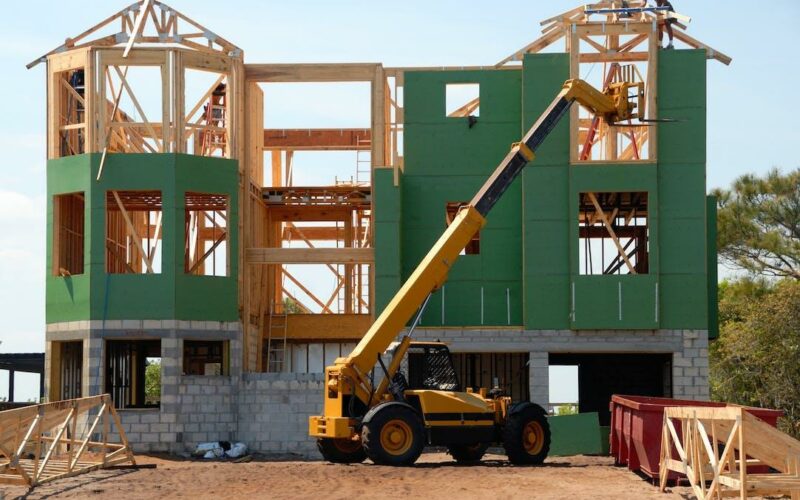Investing in property has long been regarded as a lucrative opportunity for building wealth, generating passive income, and diversifying investment portfolios. As we navigate the landscape of real estate in 2024, prospective investors are faced with a dynamic and ever-changing market influenced by economic conditions, technological advancements, and shifting consumer preferences. Whether you’re a seasoned investor or considering property investment for the first time, understanding the key factors shaping the real estate landscape is essential for making informed decisions and maximizing ROI. In this article, we delve into 7 essential things you should know when investing in property in 2024, offering insights and strategies to help you navigate the complexities of the market and accomplish your investment goals.
Things to know when investing in property
- Market Trends and Dynamics
The real estate market is subject to various trends and dynamics that can significantly impact investment opportunities and returns. In 2024, staying abreast of market trends, including supply and demand dynamics, economic indicators, and demographic shifts, is crucial for identifying emerging opportunities and mitigating risks. Factors such as urbanization, population growth, and changing consumer preferences can influence demand for different types of properties, while economic conditions such as interest rates, inflation, and job growth can affect property values and rental yields. By conducting thorough market research and analysis, investors can identify promising markets, anticipate future trends, and position themselves strategically to capitalize on investment opportunities.
- Location and Property Type
The site of a property plays a key role in its investment potential, affecting factors such as rental demand, appreciation rates, and vacancy rates. When investing in property in 2024, consider factors such as proximity to amenities, transportation hubs, employment centers, and educational institutions, as well as neighborhood demographics and crime rates. Additionally, the type of property you choose to invest in, whether residential, commercial, or mixed-use, can impact your investment strategy and returns.
Residential properties may offer stable rental income and long-term appreciation potential, while commercial properties may provide higher rental yields but carry additional risks, such as tenant turnover and economic volatility. Therefore, by carefully evaluating location and property type, investors can find opportunities that are in line with their investment objectives and risk tolerance, maximizing the potential for long-term success and profitability.
- Financing Options and Affordability
Financing plays a critical role in property investment, allowing investors to leverage their capital and increase their purchasing power. You can explore a range of financing alternatives, including traditional mortgages, private lenders, and crowd-funding platforms, to find the most suitable solution for your investment needs. Consider factors such as loan terms, interest rates, and eligibility requirements when comparing financing options, and ensure that your investment is financially viable and sustainable.
Additionally, assess your affordability and risk tolerance to determine an appropriate investment budget and financing strategy, taking into account elements such as down payment requirements, closing costs, and ongoing expenses. By securing favorable financing and maintaining financial discipline, investors can optimize their returns and mitigate risks.
- Due Diligence and Risk Management
Conducting thorough due diligence is essential for identifying risks, evaluating investment opportunities, and making informed decisions when investing in property. Perform comprehensive research on potential investment properties, including market analysis, property inspections, and financial projections, to assess their viability and potential returns. Evaluate factors such as rental income, operating expenses, vacancy rates, and property appreciation potential to determine the financial feasibility of your investment.
Moreover, consider risks such as regulatory changes, environmental hazards, and market volatility when assessing investment opportunities, and implement risk management strategies to mitigate potential losses.
- Legal and Regulatory Considerations
Navigating the legal and regulatory setting is crucial for protecting your investment. Familiarize yourself with local zoning laws, building codes, and permitting requirements that may affect your investment plans, and seek professional guidance from legal experts and real estate professionals as needed.
Furthermore, understand your rights and obligations as a property owner or landlord, including tenant rights, eviction procedures, and property maintenance responsibilities, to avoid potential legal disputes and liabilities. Researching and partnering with reputable builders and developers known for adhering to legal standards and delivering high-quality projects can provide added assurance and reduce risks associated with regulatory compliance. By staying informed about legal and regulatory considerations and partnering with the best builders in Karachi who have a proven track record of integrity and compliance, investors can protect their investments and achieve long-term profitability and sustainability of their property investments.
- Exit Strategy and Long-Term Planning
Having a clear exit strategy and long-term plan is essential for maximizing returns and mitigating risks when investing in property. Consider aspects such as market conditions, investment goals, and personal circumstances when developing your exit strategy, whether it implies selling the property for a profit, refinancing to unlock equity, or transitioning to a different investment strategy. Moreover, prioritize long-term planning and consider how your investment fits into your overall financial goals and retirement strategy, taking into account factors such as tax implications, cash flow projections, and portfolio diversification.
- Technological Integration
Technological advancements continue to revolutionize the real estate industry, offering investors opportunities to enhance the value and appeal of their properties through technological integration and smart home features. Properties equipped with smart home technologies such as home automation systems, voice-controlled assistants, security cameras, and energy management systems are becoming increasingly desirable among modern tenants and homebuyers. These technologies not only enhance convenience, security, and energy efficiency but also appeal to tech-savvy renters and buyers seeking a connected and modern living experience.
Additionally, properties located in smart cities or emerging tech hubs may offer unique investment opportunities, with the potential for higher rental yields and property appreciation due to increased demand from technology professionals and innovators. By embracing technological integration and incorporating smart home features into their properties, investors can differentiate their offerings, attract premium tenants, and stay ahead of the curve.
Final words
Investing in property in 2024 offers exciting opportunities for building wealth, generating passive income, and diversifying investment portfolios. By understanding the key factors shaping the real estate landscape, conducting thorough due diligence, and implementing effective risk management strategies, investors can navigate the complexities of the market and attain their investment goals with confidence and success. Whether you’re a novice investor or a pro, incorporating these essential considerations into your investment strategy can help you capitalize on opportunities and maximize returns in the future.

